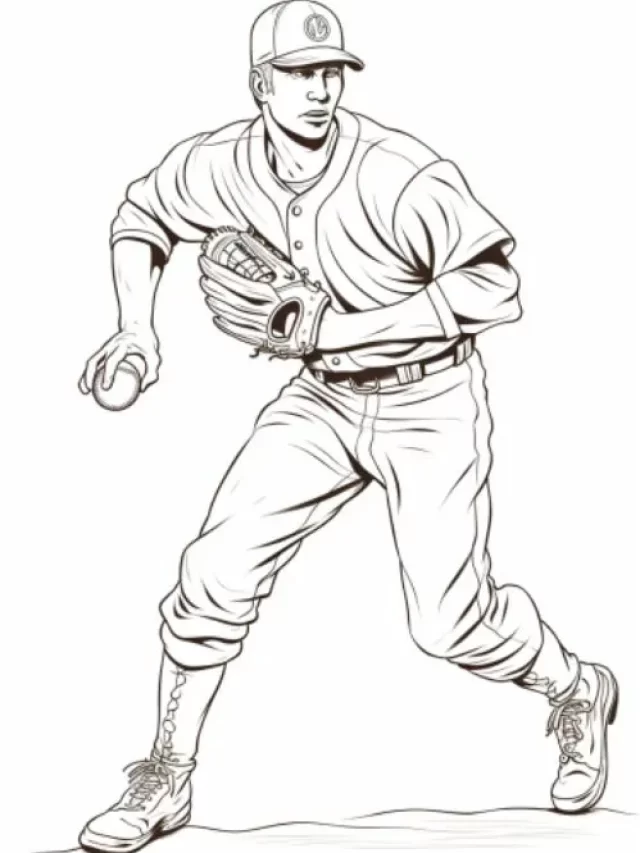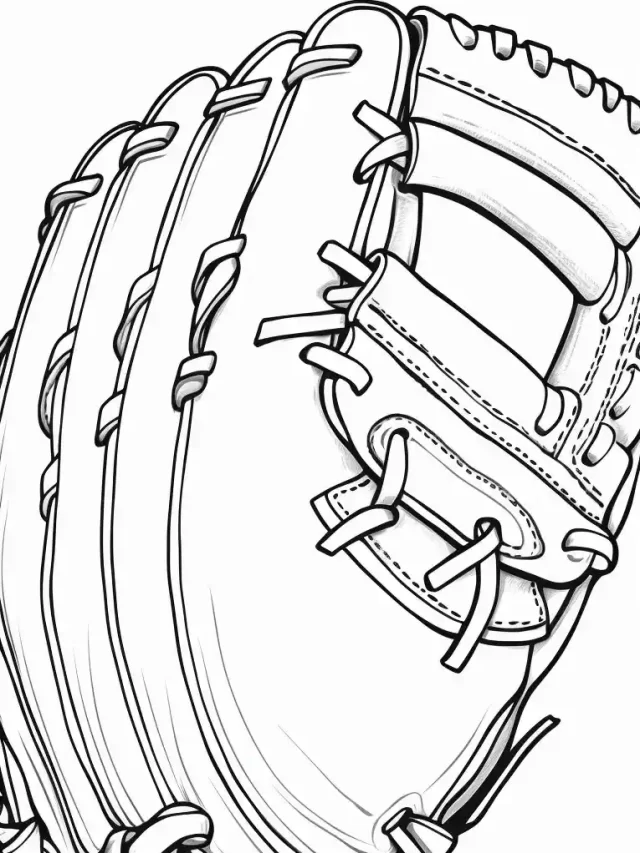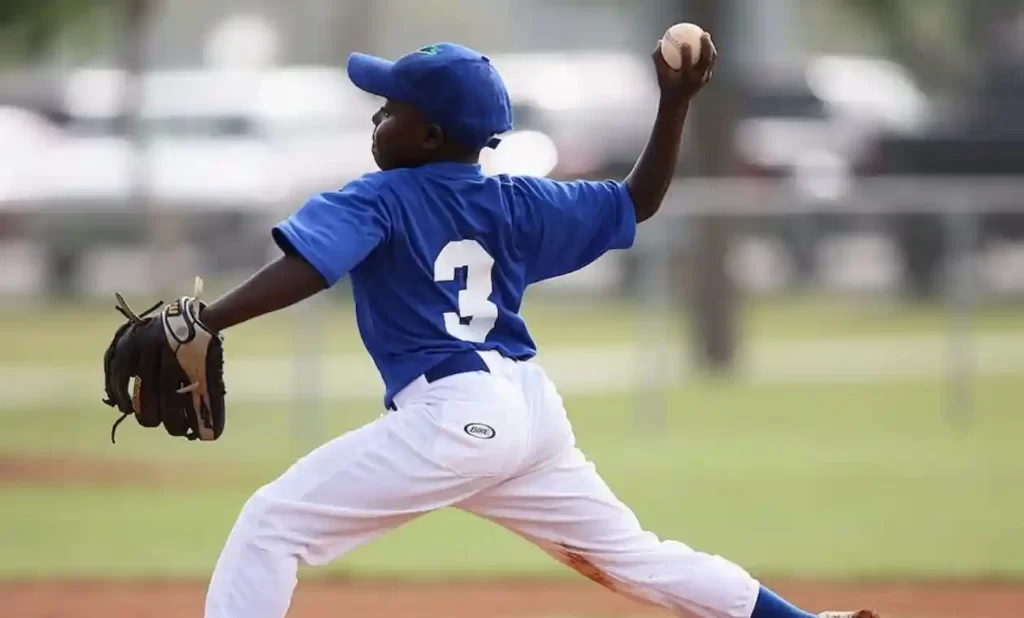
In the realm of baseball, mental toughness stands as a crucial pillar of success, distinguishing good players from great ones. Defined as the ability to persevere, stay focused, and maintain peak performance under pressure, mental toughness is the secret weapon that transforms an average player into a standout athlete.
Mental toughness in baseball goes beyond physical skills; it encapsulates a player’s resilience, tenacity, and composure in the face of challenges. It involves the capacity to bounce back from setbacks, adapt to unexpected situations, and consistently perform at the highest level, regardless of external pressures.
The significance of mental toughness cannot be overstated in the world of sports, especially in a dynamic and fast-paced game like baseball. It is the mental fortitude that enables players to maintain focus during crucial moments, make strategic decisions under stress, and bounce back from disappointments. Athletes with strong mental toughness not only endure the rigors of competition but also thrive in adversity, turning challenges into opportunities for growth.
In baseball, where every pitch and swing matters, cultivating mental toughness is the key to unlocking one’s full potential and achieving enduring success on the field. As we delve into the strategies for building mental toughness, we’ll explore how this intangible quality becomes a game-changer in the pursuit of excellence.
Understanding Mental Toughness
Mental toughness is the bedrock upon which exceptional baseball players build their success. It encompasses a set of characteristics and traits that go beyond physical prowess, influencing how athletes navigate challenges, setbacks, and the relentless pressures of the game. In this section, we delve into the intricacies of mental toughness in baseball, examining the defining characteristics of players who possess this invaluable quality and exploring the profound impact it wields on overall performance.
Characteristics of Mentally Tough Baseball Players
- Resilience: Mentally tough baseball players exhibit resilience in the face of adversity. They bounce back from failures, setbacks, and unexpected challenges with an unwavering determination to succeed.
- Focus and Concentration: The ability to maintain unwavering focus and concentration during critical moments sets mentally tough players apart. Distractions and external pressures do not derail their attention from the task at hand.
- Adaptability: The game of baseball is dynamic, requiring players to adapt swiftly to changing situations. Mentally tough individuals demonstrate the flexibility to adjust their strategies and approaches as the game unfolds.
- Self-Confidence: Confidence in one’s abilities is a hallmark of mental toughness. Players with this trait believe in their capacity to overcome obstacles and contribute significantly to their team’s success.
- Emotional Control: Controlling emotions under pressure is crucial. Mentally tough players manage stress, anxiety, and frustration effectively, ensuring that their emotional state does not compromise their performance.
Impact of Mental Toughness on Performance
- Consistency: Mentally tough players maintain consistent performance levels across various game scenarios. Their ability to deliver under pressure contributes to a stable and reliable team performance.
- Decision-Making: Clarity of thought and quick decision-making are byproducts of mental toughness. Players can make strategic choices even in high-stakes situations, enhancing team strategy and execution.
- Leadership: Mentally tough players often emerge as natural leaders. Their resilience, composure, and positive mindset inspire teammates, fostering a collective mental toughness that elevates the entire team.
- Adaptation to Pressure: Baseball is a sport filled with pressure moments. Mentally tough players embrace these situations, thriving under pressure rather than succumbing to it. They view challenges as opportunities for personal and team growth.
- Long-Term Success: The impact of mental toughness extends beyond individual games; it contributes to sustained success over a player’s career. Those who prioritize mental resilience forge enduring legacies in the sport.
In unraveling the characteristics and impact of mental toughness, we lay the foundation for players to cultivate this critical aspect of their game, ultimately propelling them toward excellence on the baseball field.
Developing Mental Toughness
Mental toughness is not a fixed trait but a skill that can be cultivated and refined over time. In this section, we explore actionable strategies for players looking to develop and enhance their mental toughness. Divided into three key components—Mindset Shifts, Visualization Techniques, and Focus and Concentration—these methods empower athletes to navigate the mental challenges of baseball with resilience and composure.
Mindset Shifts
Mindset Shift 1: Cultivating a Positive Mindset
A positive mindset is the cornerstone of mental toughness. It involves training the mind to focus on opportunities rather than obstacles. Players learn to reframe challenges as chances for growth, fostering optimism and resilience. Positive affirmations, goal-setting, and gratitude practices are effective tools for cultivating and maintaining a constructive mindset.
Mindset Shift 2: Overcoming Challenges and Failures
Mental toughness is perhaps most evident in how players respond to challenges and failures. Embracing a growth mindset, athletes view setbacks not as defeats but as valuable lessons. Strategies include learning from mistakes, setting realistic expectations, and maintaining self-compassion. Overcoming failures becomes a stepping stone toward improved performance.
Visualization Techniques
Technique 1: Imagining Success on the Field
Visualization involves mentally rehearsing successful plays and outcomes. Players close their eyes and vividly picture themselves making precise throws, hitting powerful home runs, or executing flawless catches. This technique not only enhances confidence but also helps create a mental blueprint for success on the field.
Technique 2: Mental Rehearsal for Peak Performance
Mental rehearsal goes beyond imagining individual plays. It involves envisioning the entire game, from warm-up to the final pitch. Players mentally walk through each scenario, anticipating challenges and visualizing successful strategies. This comprehensive approach primes the mind for peak performance when it matters most.
Focus and Concentration
Practice 1: Staying Present During a Baseball Game
Maintaining focus during a baseball game is a perpetual challenge. Players learn mindfulness techniques to stay present, minimize distractions and prevent mental fatigue. Being fully engaged in the current moment enhances decision-making and overall performance.
Practice 2: Techniques for Improved Concentration
Enhancing concentration involves adopting specific techniques, such as controlled breathing, narrowing the focus to key elements of the game, and developing pre-play routines. By refining these skills, players create a mental environment conducive to sustained attention and heightened concentration.
Incorporating these mindset shifts, visualization techniques, and focus strategies into regular training routines empowers players to fortify their mental resilience. As mental toughness becomes an integral part of their approach to the game, athletes are better equipped to face the challenges of baseball with confidence and poise.
Mental Preparation for Baseball Games
Mental preparation is a vital aspect of an athlete’s pre-game routine, shaping the mindset and readiness for the challenges ahead. In this section, we explore the importance of pre-game rituals and strategies for overcoming pre-game anxiety and empowering baseball players to enter the field with focus, confidence, and mental resilience.
Importance of Pre-game Rituals
- Psychological Stability: Pre-game rituals provide a sense of psychological stability for players. Familiar actions and routines create a comforting environment, helping athletes manage stress and anxiety.
- Routine Reinforcement: Consistent pre-game rituals reinforce positive behaviors and routines. Whether it’s a specific warm-up routine, visualization exercises, or team traditions, these rituals contribute to a sense of predictability and preparation.
- Team Bonding: Many pre-game rituals involve team activities, fostering camaraderie and unity among players. Shared rituals create a collective identity and a supportive team environment, boosting morale and cohesion.
- Focus and Concentration: Rituals serve as cues for the mind to transition into a focused and concentrated state. Players can use these moments to mentally prepare for the game, ensuring they step onto the field with a clear and ready mindset.
- Confidence Booster: Engaging in familiar and positive rituals can significantly boost players’ confidence. The psychological impact of believing in one’s readiness and preparation cannot be overstated.
Strategies for Overcoming Pre-game Anxiety
- Breathing Techniques: Controlled breathing exercises help manage anxiety and promote relaxation. Deep, rhythmic breaths can calm the nervous system and center the mind, allowing players to focus on the game ahead.
- Positive Affirmations: Encouraging self-talk and positive affirmations counteract negative thoughts. Reminding oneself of strengths, past successes, and the value of preparation instills confidence and reduces anxiety.
- Visualization of Success: Building on pre-game rituals, players can visualize success on the field. Imagining themselves making successful plays and contributing to the team’s victory reinforces a positive and winning mindset.
- Goal Setting: Establishing clear and achievable goals for the game provides players with a sense of purpose and direction. Breaking down larger objectives into smaller, manageable tasks helps alleviate anxiety and creates a roadmap for success.
- Team Support: Encouraging open communication within the team allows players to share their feelings and concerns. Knowing they have the support of their teammates and coaching staff creates a supportive network, reducing individual anxiety.
- Focus on Process, Not Outcome: Shifting the focus from the outcome of the game to the process of playing can mitigate anxiety. Emphasizing the importance of executing skills, making strategic decisions, and contributing to the team’s effort redirects energy toward actionable elements.
By incorporating these mental preparation strategies, baseball players equip themselves to handle the psychological demands of the game. The combination of meaningful pre-game rituals and effective anxiety management techniques establishes a mental foundation for success on the baseball field.
Real-Life Examples
In the dynamic world of baseball, stories of players exhibiting remarkable mental toughness serve as powerful inspirations. These anecdotes not only highlight the challenges players face but also showcase the resilience, determination, and unwavering spirit that propel them to greatness. Let’s delve into some compelling real-life examples of baseball players who have demonstrated extraordinary mental toughness on and off the field.
Derek Jeter – The Captain’s Unyielding Resolve
- Situation: In the 2001 American League Championship Series, Derek Jeter faced a significant injury — a dislocated shoulder.
- Demonstration of Mental Toughness: Despite the injury, Jeter continued to play, showcasing an unparalleled commitment to his team. His iconic dive into the stands to catch a fly ball exemplified not only physical prowess but mental fortitude. Jeter’s determination to contribute, even in challenging circumstances, solidified his legacy as a leader in mental toughness.
Jackie Robinson – Breaking Barriers with Grace
Situation: Jackie Robinson, the first African American to play in Major League Baseball, faced intense racial discrimination and hostility.
Demonstration of Mental Toughness: Robinson’s ability to maintain focus on the game amid racial adversity demonstrated extraordinary mental resilience. His dignified response to prejudice and his commitment to excellence on the field shattered racial barriers. Robinson’s impact extended beyond his playing years, contributing significantly to the integration of baseball and society.
Buster Posey – Triumph Over Adversity:
- Situation: Buster Posey, a key player for the San Francisco Giants, suffered a devastating leg injury in 2011.
- Demonstration of Mental Toughness: Posey’s journey of recovery showcased not only physical rehabilitation but also mental strength. His commitment to returning to the field at the highest level, coupled with his positive mindset, exemplified resilience. Posey’s comeback earned him the National League Comeback Player of the Year Award, underscoring the power of mental toughness in overcoming setbacks.
Lou Gehrig – The Iron Horse’s Graceful Endurance
- Situation: Lou Gehrig faced a tragic diagnosis of Amyotrophic Lateral Sclerosis (ALS), forcing him to retire from baseball.
- Demonstration of Mental Toughness: Gehrig’s farewell speech at Yankee Stadium, often remembered for the phrase “Luckiest Man on the Face of the Earth,” epitomized grace and courage in the face of adversity. Despite the personal challenges he confronted, Gehrig’s resilience and dignity left an indelible mark on the sport.
Clayton Kershaw – Conquering Postseason Criticism
- Situation: Clayton Kershaw, despite being one of the most dominant pitchers in the regular season, faced criticism for perceived underperformance in the postseason.
- Demonstration of Mental Toughness: Kershaw’s response to postseason challenges showcased mental fortitude. Rather than succumbing to criticism, he continued to refine his approach and deliver stellar performances when it mattered most. Kershaw’s resilience in overcoming postseason hurdles highlighted the mental strength required to navigate the highs and lows of a baseball career.
These real-life examples illuminate the multifaceted nature of mental toughness in baseball. From overcoming physical injuries to confronting societal barriers, these players exemplify the enduring spirit that defines the sport. Their stories serve as beacons of inspiration, encouraging current and aspiring athletes to cultivate their mental resilience and face challenges with unwavering determination.
Practical Tips for Players
Cultivating mental toughness is an ongoing process that extends beyond game days. In this section, we explore practical tips for players to integrate into their daily practices, fostering a mindset of resilience, focus, and mental strength.
Daily Practices to Enhance Mental Toughness:
Morning Mindfulness Routine
- Practice: Begin each day with a brief mindfulness session. Engage in deep breathing, focus on the present moment, and set positive intentions for the day ahead. This practice cultivates a centered and calm mindset, preparing players for the challenges they may encounter.
Positive Visualization Exercises
- Practice: Dedicate time to visualize successful plays and outcomes. Close your eyes and vividly picture yourself executing key skills with precision. Visualization not only boosts confidence but also conditions the mind to expect success, contributing to a resilient mindset.
Goal-Setting Sessions
- Practice: Regularly set short-term and long-term goals. Break down larger objectives into achievable steps, creating a roadmap for personal and team success. Goal-setting provides clarity, direction, and a sense of purpose, key elements of mental toughness.
Adaptability Drills
- Practice: Incorporate adaptability drills into training routines. Simulate unexpected game scenarios, challenging players to adjust their strategies on the fly. Building adaptability sharpens mental resilience and equips athletes to thrive in dynamic game situations.
Positive Self-Talk Practices
- Practice: Monitor and consciously redirect negative self-talk. Replace self-doubt with positive affirmations and constructive thoughts. Developing a habit of positive self-talk reinforces confidence and resilience, especially during challenging moments.
Incorporating Mental Toughness Training into Regular Routine
Integrated Mind-Body Workouts
- Practice: Combine physical workouts with mental exercises. Integrate mindfulness, deep breathing, or visualization into gym sessions or on-field practices. This holistic approach reinforces the connection between mental and physical well-being.
Consistent Reflection Sessions
- Practice: Schedule regular reflection sessions after games or practices. Encourage players to reflect on both successes and areas for improvement. This habit fosters a growth mindset, emphasizing the learning opportunities within every experience.
Team-Building Activities
- Practice: Engage in team-building activities that promote camaraderie and unity. Team cohesion is a crucial element of mental toughness. Activities such as trust-building exercises and collaborative challenges strengthen the collective mindset.
Pre-Game Ritual Enhancement
- Practice: Continuously refine and personalize pre-game rituals. These rituals serve as anchors for mental preparation. Regularly evaluate their effectiveness and make adjustments to ensure they align with individual preferences and team dynamics.
Scenario-Based Training
- Practice: Integrate scenario-based training into practices. Simulate high-pressure game situations, challenging players to make critical decisions under stress. This type of training hones mental toughness by acclimating athletes to the psychological demands of competition.
By incorporating these practical tips into their daily routines, players can systematically enhance their mental toughness. The integration of mental training alongside physical practices creates a comprehensive approach to player development, fostering a resilient mindset that extends beyond the boundaries of the baseball field.
Conclusion
In the journey to build mental toughness in baseball, players embark on a transformative path that transcends the boundaries of physical skill. This exploration into the realm of mental resilience unveils a spectrum of strategies that form the bedrock of success on the diamond.
The cultivation of a positive mindset, visualization techniques, and unwavering focus becomes not just a training regimen but a way of life for athletes seeking to elevate their performance. As we recap key strategies, from daily mindfulness routines to real-life examples of baseball icons showcasing remarkable mental fortitude, it becomes evident that mental toughness is a dynamic force, adaptable to the evolving landscape of the game.
Encouragement resonates as the driving force, urging players to initiate their mental toughness journey with confidence and commitment. The power to overcome challenges, embrace failures as stepping stones, and visualize success lies within every player.
As they navigate the highs and lows of the baseball journey, this newfound mental resilience becomes a compass, guiding them toward sustained excellence, both on and off the field. In the pursuit of mastering the mental game, players are not just honing their skills but shaping a mindset that positions them as true champions in the sport of baseball.

Meet Daniel Anderson, the heart and soul behind Baseball Pro Picks. At 49, Daniel’s life has revolved around baseball, a passion that’s as strong today as it was when he first fell in love with the game. Living in the USA, Daniel has dedicated countless hours to watching, analyzing, and understanding every pitch, hit, and home run, making almost no game missed. His deep-rooted love for the sport is matched only by his commitment to sharing insightful, expert analysis with fellow baseball enthusiasts. With decades of experience and a keen eye for the game’s nuances, Daniel brings a unique perspective that enriches Baseball Pro Picks. Trust Daniel to guide you through the intricacies of baseball with the authority and trustworthiness of a true aficionado.












